00:23
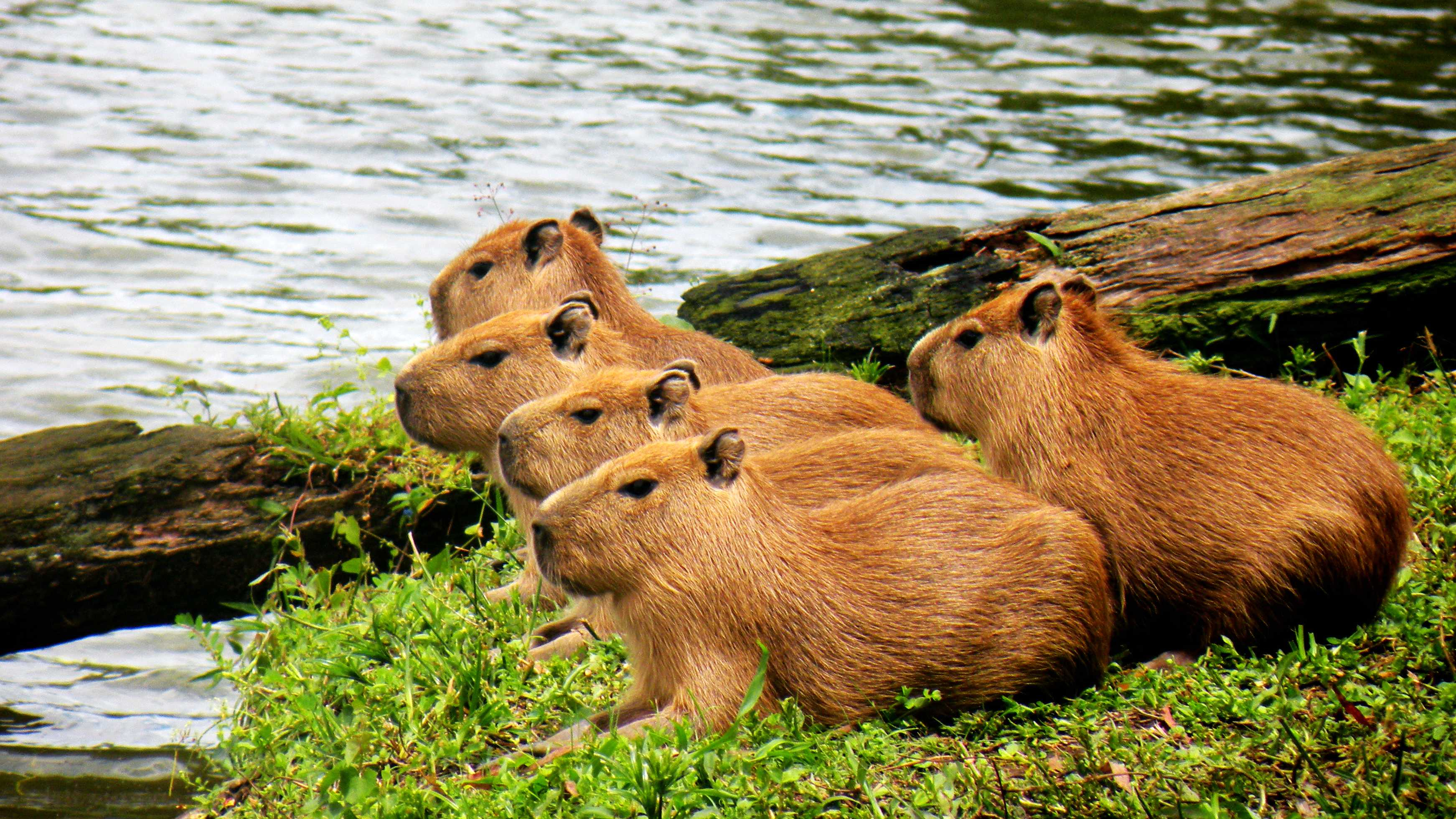
Recently wildfires hit the Pantanal wetlands in southern Brazil, turning natural habitats of thousands of animals into ashes. Rodents like capybaras are among the worst affected.
As the largest rodent in the world, a capybara can weigh up to 91 kilograms. Interestingly, female capybaras are usually heavier than male ones, unlike other rodent species.
Capybaras, who are native to South America, also have an unusual diet. They sometimes eat their poop because it contains beneficial bacteria that help them break down thick fibers during the digestion process.
Born with a good "service sense," capybaras in the wild often act as "moving chairs" for smaller creatures like birds, rabbits, or even monkeys.
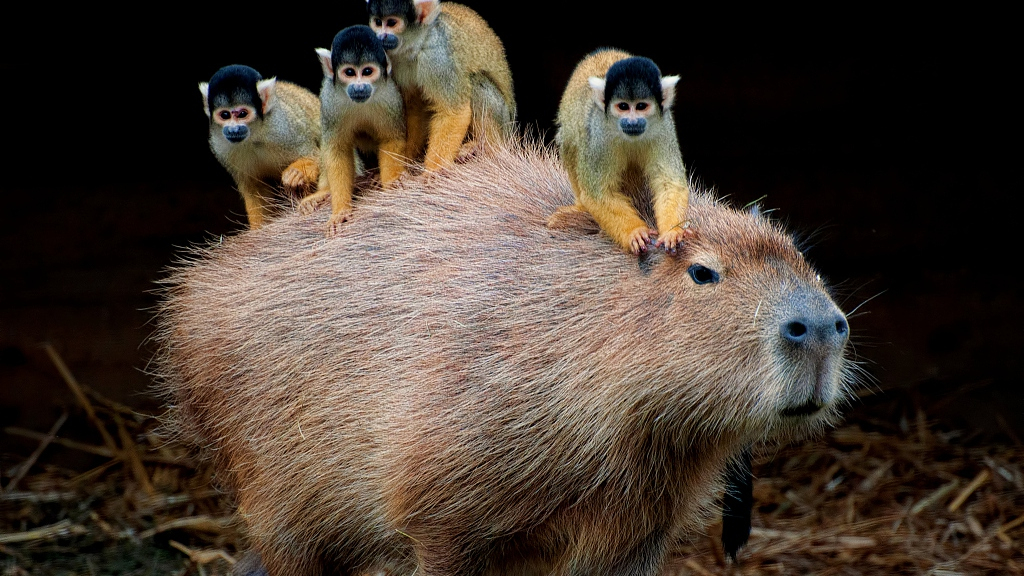
Monkeys enjoy a ride on a capybara. /VCG Photo
Monkeys enjoy a ride on a capybara. /VCG Photo
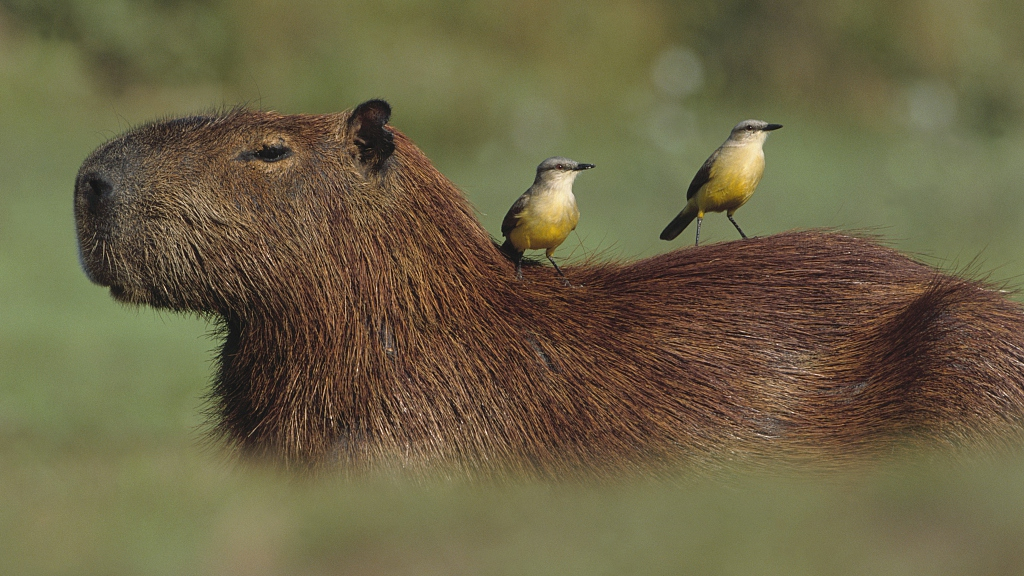
Capybaras often act like "moving chairs." /VCG Photo
Capybaras often act like "moving chairs." /VCG Photo
Capybaras can't live without water. They can stay underwater for up to five minutes. Not only they sleep in the water but they also mate in water. If a female capybara finds the suitor unattractive, it will simply submerge or leave the water.
For their dependency on water, capybaras usually inhabit grasslands or forests with abundant freshwater nearby. Pantanal, as the world's largest freshwater wetland, is a perfect place for capybaras to live and breed.
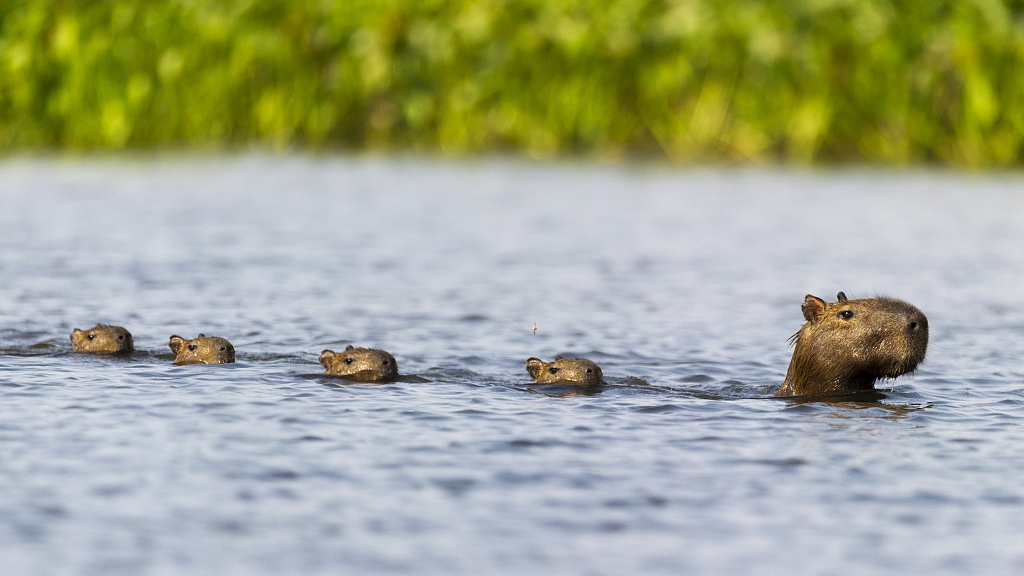
Capybaras are really good swimmers and can survive underwater for up to five minutes. /VCG Photo
Capybaras are really good swimmers and can survive underwater for up to five minutes. /VCG Photo
So far, over 50,000 hectares have been affected by massive wildfires in the Pantanal wetlands. As satellite images from Brazil's National Institute for Space Research (INPE) showed, there have been nearly 8,500 fires in the region this year, the worst record since 2007. If the wildfires keep raging, these gentle capybaras might lose their homes.
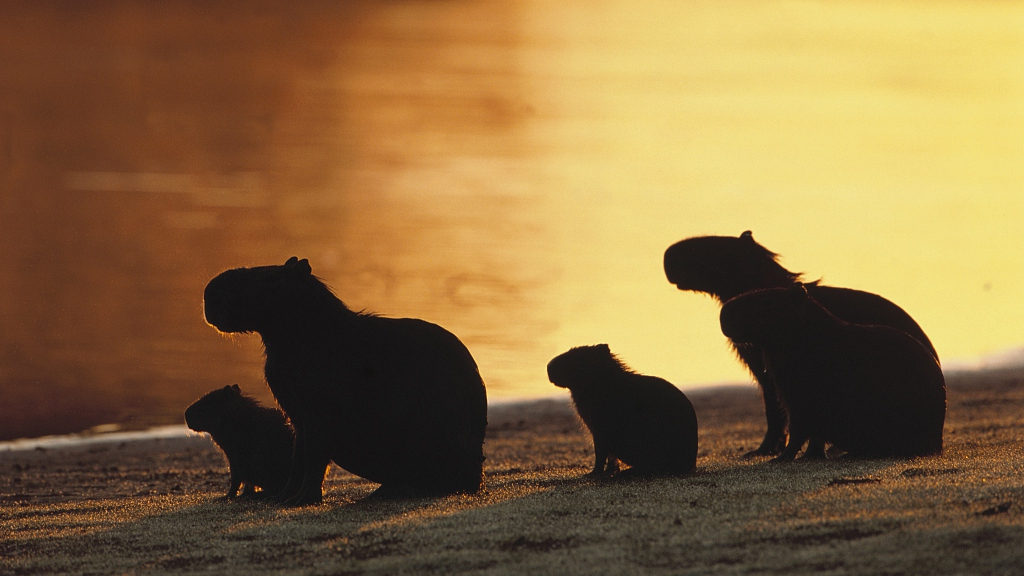
Frequent wildfires pose a serious threat of shrinking wildlife habitats. /VCG Photo
Frequent wildfires pose a serious threat of shrinking wildlife habitats. /VCG Photo
(If you want to contribute and have specific expertise, please contact us at nature@cgtn.com.)